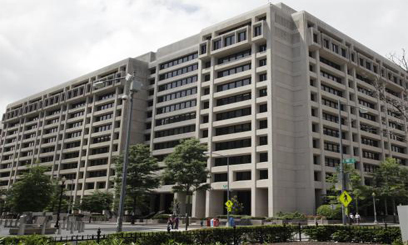WASHINGTON, July 26 – A key International Monetary Fund official on Thursday said Hungary needs a smaller, more efficient government to boost economic growth, not “ad hoc” tax measures.
After wrapping up week-long talks with Hungarian authorities, Thanos Arvanitis, IMF mission chief for Hungary, warned against using off-the-cuff tax measures to try to balance public accounts, touching on a sticking point in talks.
“Greater focus should be placed on achieving a more balanced fiscal consolidation, shifting away from ad hoc tax measures towards streamlining public expenditures, while ensuring adequate support to vulnerable groups,” Arvanitis said in a statement.
“A smaller and more efficient state with strong and predictable policies would create better conditions for private-sector led growth, and reduce the tax burden over time.”
His comments followed a week-long visit by a delegation from the IMF and European Union that ended on Wednesday.
On Thursday, Budapest’s chief negotiator in the talks on Thursday expressed hope for a long-delayed IMF-EU financial rescue package for 15 billion euros ($18.4 billion) by year-end.
“Hungary could reach a deal with the IMF and the EU at the end of the autumn,” or around November or December, Mihaly Varga, the minister without portfolio appointed by Prime Minister Viktor Orban to lead the talks, told MRI radio.
The official said points of contention to be ironed out included a new financial transaction tax that controversially also imposes a levy on the central bank, and ways to meet the government’s 2013 budget targets.
The right-wing Orban first approached the IMF and the EU for help last year after the Hungarian currency, the forint, fell sharply and the EU member state’s borrowing costs on financial markets soared just as the economy weakened.
Investors were spooked by a number of unorthodox economic policies introduced by Orban’s government such as the forced nationalization of state pension assets.
Hungary’s sovereign debt was cut to “junk” status by credit rating agencies.
Arvanitis, the IMF mission chief, said the monetary policy stance remained appropriate, but the economy, expected to contract in 2012, faces difficult external and domestic challenges.
“The key near-term challenge is to maintain macroeconomic and financial stability, while building the foundations for a more robust recovery which is necessary to raise living standards,” Arvanitis said.
He said the IMF mission, together with its European partners, has had “constructive” discussions with the authorities. “The dialogue will continue in the period ahead.”



































